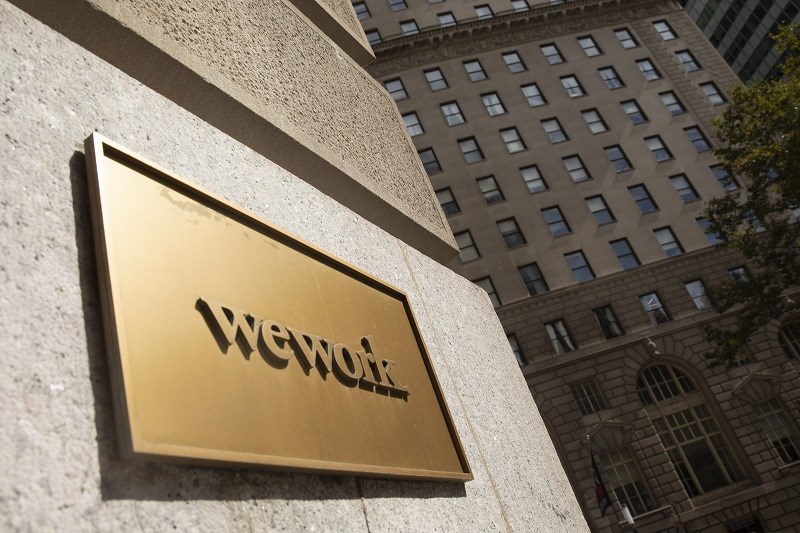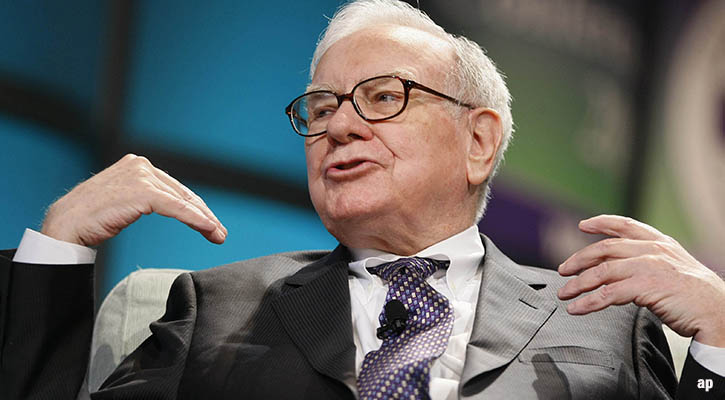
In the wake of the recent Berkshire Hathaway meeting, our stock of the week poll has a Warren Buffett theme and our Twitter followers have chosen one of his biggest holdings, Kraft Heinz (KHC), maker of Kraft cheese and Heinz baked beans.
The US food and drinks maker, one of the world’s largest, is the fifth biggest holding in the Berkshire Hathaway portfolio, ording to the most recent filings, and this $14 billion stake makes up nearly 27% of the company’s shares.
Buffett’s long and impressive track record is hard to question, but Kraft Heinz is not considered one of his more astute purchases – even he admitted at the 2019 shareholder meeting that Berkshire had overpaid for the company, but he has so far ruled out selling the stake.
Kraft and Heinz were two separate companies until Buffett’s Berkshire bought baked bean maker Heinz in 2013 for $23 billion with investment firm 3G Capital, merging this with Kraft in 2015. Shares in the listed entity were $77 per share and are now trading at $43. They hit a low of $22 at the height of the coronavirus sell-off in March 2020, but have sprung back as comfort eating and home cooking have boomed during lockdown.
Still, shares are still below their fair value of $49.50, according to Morningstar analyst Erin Lash, who was impressed with the company’s most recent quarterly results, which show a sustained improvement in its new strategy. “Even as the market has begun to warm to the change underway at Kraft Heinz (sending shares up around 20% since the start of 2021), we still view the stock as attractive, trading at more than a 15% discount to our intrinsic valuation,” she says. The biggest question for brands that have prospered during the pandemic, such as supermarkets and food manufactuerers, is whether the sales momentum can be continued. Kraft Heinz is “is holding onto the households it has gained over the past year”, Lash says, helped by product innovation and increased marketing spend. Sales growth is likely to be less dramatic going forward as households work through the staples in the cupboards – remember when people were stockpiling basics in the early days of the pandemic? – and start to eat out more.
Beans, Moats and Cheese
Despite the company’s strong brands and their long history – Heinz beans were first sold in London in 1886 – Morningstar analysts don’t think the company warrants an economic moat, a concept of competitive advantage popularised by Warren Buffett himself. Before the recent change of strategy, the company has “refrained from investing meaningful resources behind its brands”, Lash says – with investment in research and development and marketing below its rivals. Previous management priotised short-term cash flow and cost cutting over maintaining its competitive position, she adds.
And analysts don’t believe the company has significant pricing power, because in many categories like packaged meats and cheeses, consumers tend to choose price over brand. Equally, analysts could reconsider the company’s moat rating in the future, especially as it’s under new management: “We believe Kraft Heinz will ultimately ramp up its brand spending in order to stave off market share losses, even though this spending would hamper margin gains over time (if not fueled by efficiency savings). But if this plays out and the firm’s sales and share exhibit stabilisation, we would consider re-evaluating our moat rating.”
Our recent article, “Funds That Buy Like Warren Buffett”, reveals which UK funds own companies like those held by Berkshire Hathaway. One of these is Bronze-rated Jupiter Merian North American Equity, a highly rated active fund with a decent weighting towards Kraft Heinz. The fund has returned 13% so far this year and 15.5% in 2020. Other US food and drink firms held by the firm include Domino’s Pizza (DPZ), former stock of the week and Cadbury owner Mondelez (MDLZ) and energy drinks firm Monster Beverage (MNST).




























